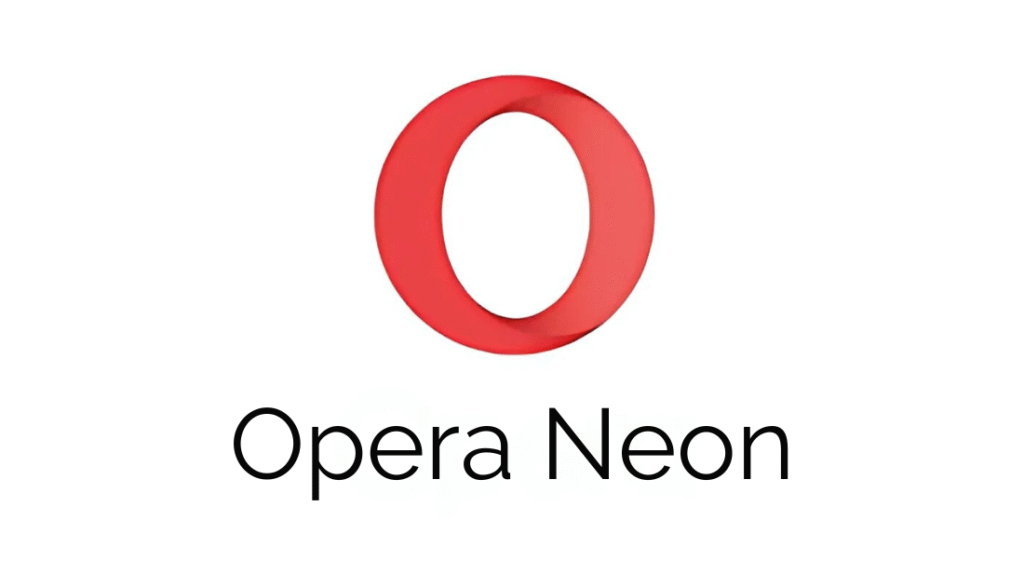Opera has introduced Neon, a new experimental desktop browser designed to integrate artificial intelligence directly into the browsing experience.
Highlights
- Opera launches “Neon”, an experimental desktop browser built around embedded AI functionality.
- Three core AI agents:
- Chat: contextual AI assistant for summaries and questions.
- Do: local automation for actions like form-filling and booking.
- Make: cloud-powered creation tool for websites, code, and more.
- Local AI execution ensures privacy by processing actions on the user’s device.
- Persistent cloud-based VM allows tasks like code generation to continue running even when the browser is offline.
- Positioned as an “AI playground” where users can experiment with workflows and automation inside the browser.
- Early access via waitlist with a subscription-based pricing model to be announced.
- Marks a shift toward the agentic web (Web 4.0), where browsers act as autonomous assistants.
- Enters a competitive landscape with players like Google, Arc, and Mozilla also developing AI-integrated browsers.
- Revives Opera’s 2017 “Neon” name with real AI-driven functionality beyond visual design.
- Success will depend on performance, privacy safeguards, and practical utility across diverse browsing tasks.
Unlike traditional browsers that use AI to assist with search or enhance productivity features, Neon embeds AI into the core of how users interact with the web.
Currently available through a waitlist and expected to follow a subscription-based model, Neon represents a potential shift in browser design—one that emphasizes task automation, contextual understanding, and content generation.
Three AI Tools at the Core: Chat, Do, and Make
Neon is structured around three integrated AI tools—Chat, Do, and Make—each addressing a different type of user interaction:
Chat: Conversational AI for Browsing Context
The Chat tool serves as an embedded AI assistant that helps users interact with content in real time. It can answer questions, summarize pages, and offer additional information through a conversational interface.
While this feature is similar to chat tools in other browsers, it lays the groundwork for deeper, contextual AI support.
Do: Local Task Automation
The Do tool introduces a more autonomous agentic model. Based on Opera’s Browser Operator AI, it can carry out routine actions such as filling out forms, booking travel, or navigating websites—executed locally on the device to prioritize user privacy and data control.
Make: Content Creation via Prompts
Perhaps the most ambitious feature, Make allows users to create websites, games, code, and documents from simple text instructions.
Powered by a cloud-based virtual machine, the browser can process these tasks in the background—even when the user is offline—offering persistent workflows and multi-tasking capabilities.
Features and Concepts
Agentic Browsing Approach
Neon introduces the concept of an “agentic browser”—a system designed not only to assist users but to act on their behalf. This includes autonomous task completion, creative content development, and integrated assistance, aligning with broader trends in AI-powered web experiences.
Cloud-Based Virtual Machine
Neon leverages a cloud-based virtual environment to manage tasks like code generation or document creation. This system allows tasks to continue running offline, providing uninterrupted productivity even when the browser isn’t actively used.
Local Execution for Privacy
Actions performed through the “Do” agent are executed locally, with Opera emphasizing data privacy and security. This local-first approach contrasts with some other AI systems that require cloud processing for every interaction.
An Experimental AI Playground
Opera positions Neon as an “AI playground”—a space for users to explore what agentic AI can offer in a browser context. Users can test AI workflows, experiment with prompts, and personalize their interactions directly within the browsing interface.
Subscription Model and Early Access
Neon will be available via a subscription plan, although pricing details have not yet been announced. Interested users can currently sign up for early access through a waitlist.
A New Chapter in the Neon Brand
The Neon name may sound familiar. Opera originally released an experimental browser under the same name in 2017, which served primarily as a design concept.
The 2025 version of Opera Neon aims to go beyond visual experimentation, delivering practical AI-driven tools that enable more dynamic and automated web experiences.
Industry Context and Competitive Landscape
Opera’s development of Neon aligns with a broader industry shift toward AI-integrated browsing. Other companies—including Google, The Browser Company (makers of Arc), and Mozilla—are also investing in AI agents that perform more than simple searches.
However, where some platforms are still in concept or preview stages, Opera’s Neon has entered active testing.
Despite this head start, key details such as pricing, performance benchmarks, and developer tools remain unknown. Additionally, its real-world utility will depend on how effectively the AI tools function across diverse browsing tasks.
Web 4.0 and the Agentic Web
Opera frames Neon as a step toward the “agentic web”—sometimes referred to as Web 4.0—where the browser becomes an intelligent partner capable of managing workflows, executing tasks, and generating content autonomously.
Whether Neon will define a new standard or serve as a niche experiment depends on its ability to deliver reliable, privacy-conscious, and user-friendly features that align with evolving expectations in the age of AI.


